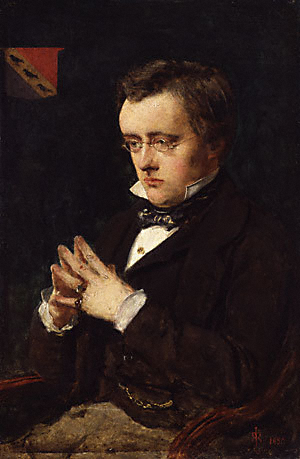|
Cometh Up As A Flower
''Cometh Up as a Flower'' is the second novel by popular Victorian novelist and short story writer Rhoda Broughton. First published in 1867, the novel is often grouped with the sensation novels of the 1860s and 1870s, though Pamela K. Gilbert notes that "her novels were not characterized by the kind of dark secrets and heavily plotted crime stories that were common in the writing of more typical sensation authors such as Wilkie Collins or Mary Elizabeth Braddon Mary Elizabeth Braddon (4 October 1835 – 4 February 1915) was an English popular novelist of the Victorian era. She is best known for her 1862 sensation novel ''Lady Audley's Secret'', which has also been dramatised and filmed several times. ...". References 1867 British novels {{1860s-novel-stub ... [...More Info...] [...Related Items...] OR: [Wikipedia] [Google] [Baidu] |
Rhoda Broughton
Rhoda Broughton (29 November 1840 – 5 June 1920) was a Welsh novelist and short story writer.Robert Hadji, "Rhoda Broughton" in Jack Sullivan (ed) (1986) ''The Penguin Encyclopedia of Horror and the Supernatural'' Viking Press, 1986, , p. 285. Her early novels earned a reputation for sensationalism, so that her later, stronger work tended to be neglected by critics, although she was called a queen of the circulating libraries. Her novel ''Dear Faustina'' (1897) has been noted for its homoeroticism. Her novel ''Lavinia'' (1902) depicts a seemingly "unmanly" young man, who wishes he had been born as a woman. Broughton descended from the Broughton baronets, as a granddaughter of the 8th baronet. She was a niece of Sheridan le Fanu, who helped her to start her literary career. She was a long-time friend of fellow writer Henry James and was noted for her adversarial relationship with both Lewis Carroll and Oscar Wilde. Life Rhoda Broughton was born in Denbigh in North Wales on 29 ... [...More Info...] [...Related Items...] OR: [Wikipedia] [Google] [Baidu] |
Sensation Novel
The sensation novel, also sensation fiction, was a literary genre of fiction that achieved peak popularity in Great Britain in the 1860s and 1870s.I. Ousby ed., ''The Cambridge Guide to Literature in English'' (1995) p. 844 Its literary forebears included the melodramatic novels and the Newgate novels, which focused on tales woven around criminal biographies; it also drew on the Gothic, romance, as well as mass market genres. The genre's popularity was conjoined to an expanding book market and growth of a reading public, by-products of the Industrial Revolution. Whereas romance and realism had traditionally been contradictory modes of literature, they were brought together in sensation fiction. The sensation novelists commonly wrote stories that were allegorical and abstract; the abstract nature of the stories gave the authors room to explore scenarios that wrestled with the social anxietiesHughes, Winifred. ''The Maniac in the Cellar''. Princeton: Princeton University, 1980. Print. ... [...More Info...] [...Related Items...] OR: [Wikipedia] [Google] [Baidu] |
Wilkie Collins
William Wilkie Collins (8 January 1824 – 23 September 1889) was an English novelist and playwright known especially for ''The Woman in White (novel), The Woman in White'' (1859), a mystery novel and early "sensation novel", and for ''The Moonstone'' (1868), which has been proposed as the first modern English detective novel. Born to the London painter William Collins (painter), William Collins and his wife, Harriet Geddes, he moved with them to Italy when he was twelve, living there and in France for two years, learning both Italian language, Italian and French language, French. He worked initially as a tea merchant. After ''Antonina'', his first novel, appeared in 1850, Collins met Charles Dickens, who became a friend and mentor. Some of his work appeared in Dickens's journals ''Household Words'' and ''All the Year Round''. They also collaborated on drama and fiction. Collins gained financial stability and an international following by the 1860s, but became addicted to the op ... [...More Info...] [...Related Items...] OR: [Wikipedia] [Google] [Baidu] |
Mary Elizabeth Braddon
Mary Elizabeth Braddon (4 October 1835 – 4 February 1915) was an English popular novelist of the Victorian era. She is best known for her 1862 sensation novel ''Lady Audley's Secret'', which has also been dramatised and filmed several times. Biography Born in Soho, London, Mary Elizabeth Braddon was privately educated. Her mother Fanny separated from her father Henry because of his infidelities in 1840, when Mary was five. When Mary was ten years old, her brother Edward Braddon left for India and later Australia, where he became Premier of Tasmania. Mary worked as an actress for three years, when she was befriended by Clara and Adelaide Biddle. They were only playing minor roles, but Braddon was able to support herself and her mother. Adelaide noted that Braddon's interest in acting waned as she took up writing novels. Mary met John Maxwell (1824–1895), a publisher of periodicals, in April 1861 and moved in with him in 1861.Victor E. Neuburg, ''The Popular Press Companion ... [...More Info...] [...Related Items...] OR: [Wikipedia] [Google] [Baidu] |


.jpg)